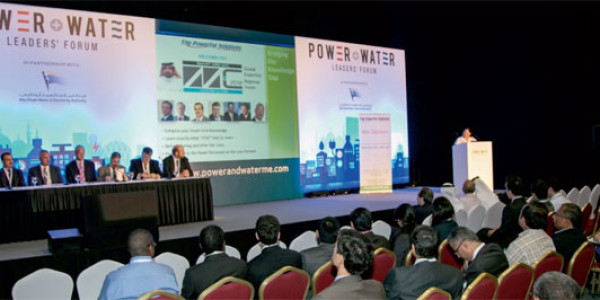Taylor Scott International News
GCC may face gas shortage by 2015 on strong demand Staff Report / 31 August 2013 Gas shortage in the GCC will become more pronounced by 2015 as demand stays strong and supply struggles to keep pace, according to a recent report released by global consultancy firm Booz & Company, The second Power + Water Leader’s Forum will be held on September 23. — Supplied photo The report, entitled “Gas shortage in the GCC — how to bridge the gap”, suggests that increasing power consumption, depleting oil fields, gas exploration and long term gas export commitments have limited the local supply of gas in the region. The report further adds that GCC countries can address the supply demand imbalance by raising local gas prices gradually, improving energy efficiency and investing in alternative methods to overcome the shortage. In an effort to bring the gas sector back on track, Robin Mills, head of consulting at Manaar Energy, will outline recent developments in the GCC gas and power sector and discuss the regional gas supply outlook and its impact on prices at the second Power + Water Leader’s Forum. Taking place on September 23 at the Abu Dhabi National Exhibition Centre, the dedicated conference runs alongside the Power + Water Middle East exhibition, which takes place from September 23 to 25, and will provide an ideal platform for experts to discuss sustainable best practices and innovative solutions across two of the region’s bourgeoning sectors. “The GCC’s gas shortage can be resolved,” said Mills. “But timing is crucial and waiting for solutions to materialise might mean that GCC states will have to burn more valuable liquid fuels to meet demand.” “Governments need a mix of short- and long-term measures to address the gas shortage. They need to invest in new developments to increase production, increase local gas prices steadily to encourage efficiency, and expand the use of alternative sources in the energy mix. Gas-sector investment is expanding rapidly across the GCC. Some of the most interesting projects include the Khazzan tight gas project in Oman, the Bab and Shah sour gas projects in Abu Dhabi and the Emirates LNG import terminal in Fujairah.” Anita Mathews, director of Informa Energy Group, organisers of Power + Water Middle East, said that an alternative energy source now making strides in the region is nuclear. According to research reports, UAE has set an ambitious target of generating one-quarter of its power from nuclear sources over the next 15 to 20 years. To reach this target, Abu Dhabi plans to construct at least six nuclear plants at a cost of more than $5 billion each. Held in strategic partnership with the Abu Dhabi Water and Electricity Authority, Power + Water Middle East is supported by the Society of Engineers — UAE and Confederation of Indian Industry, which will be organising a government supported national pavilion at the event. business@khaleejtimes.com Taylor Scott International
Taylor Scott International, Taylor Scott








